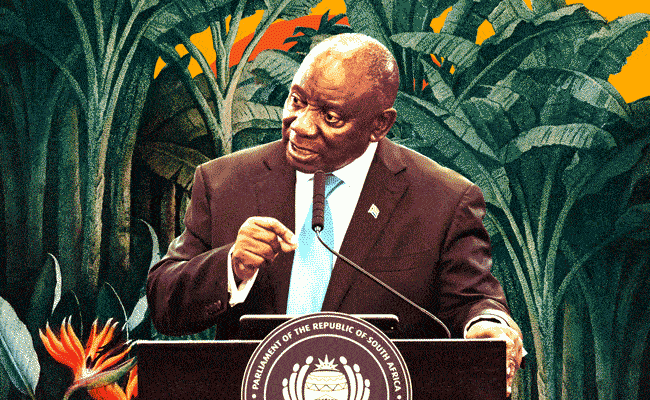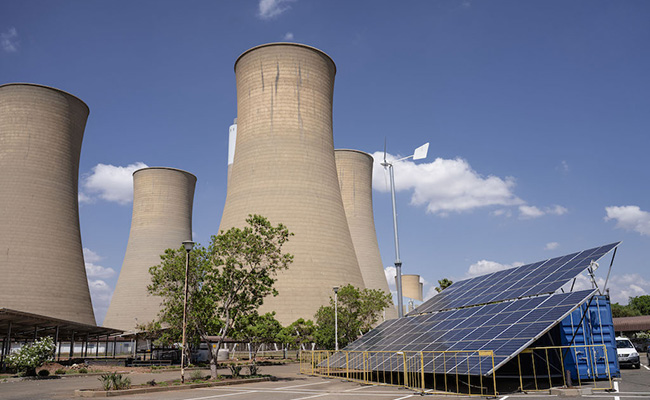You’ve seen the hand-wringing: sustainable investing is facing an existential crisis from Donald Trump’s administration’s efforts to roll back policies based on environmental, social and governance (ESG), and diversity, equity and inclusion (DEI) principles.
But this is misguided angst; rather than marking ESG’s death knell, the data shows that, counterintuitively, these pressures are only accelerating its evolution to something far more durable, and less superficial.
You can see where the anxiety comes from, however. The backlash against so-called “woke capitalism” has gathered pace since Trump’s inauguration in January, heightening doubts over ESG fund returns and sparking fresh claims of greenwashing.
In the first quarter of this year, ESG funds in the US recorded $8.6bn in outflows, a sharp reversal from $18.1bn inflows the previous quarter. Even Europe saw its first net outflows from sustainable funds since 2018. On the face of it, this shows that while the US accounts for just 10% of global ESG assets, Trump’s political backlash has rippled across the Atlantic.
And it’s a shift that extends beyond politics too. AI, cybersecurity and themes of economic resilience are crowding out ESG on the corporate agenda. For the first time in six years, European banks mentioned AI more frequently than ESG in earnings calls, according to Bloomberg.
This policy shift has a real-world monetary cost too. Earlier this year, the US withdrew from the Paris Agreement (for the second time) and revoked a $1.5bn commitment under the Just Energy Transition Partnership. And the UK has similarly prioritised short-term national interests over long-term sustainability goals, redirecting development aid funding to bolster defence spending.
Yet, despite all this, the data suggests the fears of an ESG apocalypse are overblown.
Overhaul, not a retreat
First, while there has been a retreat in ESG funding, this more accurately reflects a pivot to a more sophisticated form of impact investing. Investors are rightly abandoning low-value offerings, such as funds using crude exclusionary screens or conventional products rebranded with ESG labels to charge premium fees.
It’s a positive correction: divesting from polluters merely shifts ownership to indifferent holders, undermining the real systemic change that needs to happen.
Instead, we’re seeing a new form of ESG emerging. This integrates ESG into fundamental analysis, prioritising active stewardship, engagement and tangible outcomes. Themed strategies targeting climate adaptation, biodiversity and natural capital are gaining traction, alongside “quantamental” models tying ESG factors to financial performance.
Perhaps the most obvious example of this are “green bonds”, which are proliferating. Last year, for instance, more than $1-trillion was raised in these bonds.
Second, anti-ESG policy is more a US issue than a global one – and, in truth, it’s not even a uniform retreat in the US. While the US Securities and Exchange Commission has diluted climate rules, California has enacted the strictest disclosure regime in the US yet.
The European rejection of ESG is also overhyped. True, the Corporate Sustainability Reporting Directive has been reduced in scope under the Omnibus package, but this is largely a removal of unnecessary reporting red tape to stay competitive with the US. Europe’s core ESG commitments remain.
And while US asset managers have bent to political pressure on ESG, more than 30 countries have committed to adopting or aligning with the International Sustainability Standards Board framework, which aims for convergence in sustainability reporting.
What we see, in others words, is a global ESG landscape in flux – not in decline.
Third, a pushback on “woke capitalism” doesn’t change the science.
As most investment analysts will tell you, ESG remains fundamental to risk assessment, not as some form of box-ticking, but as a financial necessity.
The original ESG imperatives – climate disruption, resource scarcity and social instability – are intensifying. Recent science shows seven of nine planetary boundaries have been breached, creating irreversible environmental damage and business risks. For pension funds and institutional investors, these clear business risks require active consideration.
Fourth, capital follows long-term value, regardless of the political winds. S&P Global forecasts that even US policy shifts will have a “limited impact” on sustainable investment trends.
The clean energy sector underscores this: plunging technology costs and market forces have made renewables increasingly competitive. In 2024, global energy transition investment hit $2.1-trillion – 10 times the amount poured into AI.
ESG is dead; long live ESG
So what does this mean for South Africa, and ESG investment locally?
Well, it’s clear that South Africa’s ESG market demonstrates enduring demand despite the headwinds from the US. The country has a well-established responsible investment culture, which underpins the demand for impact-aligned products, particularly among pension funds.
Local asset managers report growing client interest for funds based around sustainability principes. This speaks to a theme that is in the ascendance, rather than one on the decline.
As it is, South Africa has been a leader in corporate governance for decades, being recognised as such in the World Economic Forum rankings, thanks to the King Code, which dates back to the 1990s. The country’s approach to integrated reporting has fostered voluntary sustainability disclosure for decades.
This disclosure regime is, if anything, intensifying. A shift to mandatory reporting is now under way as the government considers adopting two new accounting standards to codify this governance reporting: IFRS S1 and S2. This is a move aligned with developments in other African markets.
So how we make sense of what is happening in the US, compared to what’s happening elsewhere, including in South Africa?
Well, it is certainly true that the Trump-led aggression against sustainability has introduced political and legal uncertainty for companies and investors. Definitely enough to create hesitation among investors.
But this is actually a good thing. This upheaval has caused a welcome and necessary shift away from ESG posturing to substantive risk analysis and genuine impact investing.
The “ESG” label may be dead, but the principles underpinning environmental and social sustainability remain valid. The arc of history is towards ecological sustainability and this – rooted in material financial risks and opportunities – will outlast the political noise.
Ryan Short is a partner and Gita Briel an analyst at Genesis Analytics. They write in their personal capacities.
Top image: Rawpixel/Currency collage.
Sign up to Currency’s weekly newsletters to receive your own bulletin of weekday news and weekend treats. Register here.













